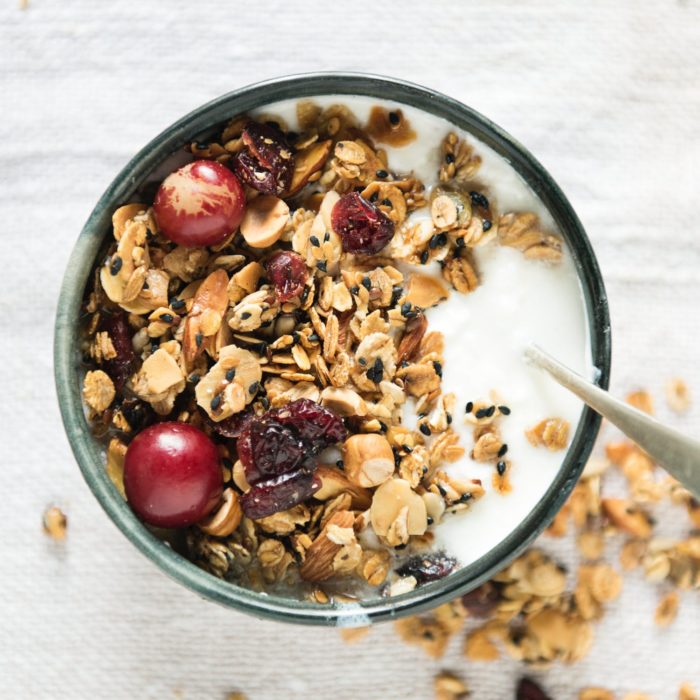Constipation is defined as a decrease in bowel movements to less than 3 times per week, and is often characterized by having hard, dry stools that may be difficult to pass (1). Constipation can be uncomfortable, painful, and can diminish your appetite, cause bloating, and may hurt self-image as well. So, what can be done about constipation? For many, constipation can be managed with diet and lifestyle. But for some, there may be another underlying reason for the constipation.
Top Causes of Constipation
It is important to first identify the cause of constipation before being able to appropriately manage it. Many factors can contribute to constipation, including:
- Diet, especially when low in fiber
- Inadequate fluid intake
- Inactivity
- Certain medications or supplements
- Stress or anxiety or a change from a normal routine
- Laxative abuse
- Issues with pelvic floor muscles
- Uterine or pelvic organ prolapse
- Motility disorders such as IBS
How to Fix Constipation: Diet and Lifestyle
For many people experiencing constipation, addressing diet and lifestyle can do wonders for keeping bowel movements regular. Consider the following:
1. Water: Aim for at least 64 ounces, or 8 cups, of water each day. For those who have trouble getting enough water in, try investing in a fun new water bottle such as one with a straw or with time markings. You can also try flavoring your water, by making fruit infused water or adding a flavoring or hydration packet. Hydration tracking apps like Water Llama can also help you keep track of how much you drink and send you reminders throughout the day.
2. Fiber: Getting enough fiber in our diet helps give us enough “bulk” to form a solid stool, and can act like a broom to sweep through our gut and improve regularity. Fiber can be food sources like fruits and vegetables, nuts, seeds, whole grains, beans, and legumes. Aim for at least 25 grams of fiber per day, and be sure you are drinking enough water to pair with the fiber!
3. Physical activity: Physical activity will help stimulate the muscles in our bodies, which can thus help move the muscles in our gut and promote more regular bowel movements. Physical activity also tends to help reduce stress, which can improve gut function as well.
4. Stress or change of routine: Also consider the role of stress in bowel movements. It is common for people to feel constipated when out of their normal routines or not in an environment where they feel comfortable to have a bowel movement. Consider different strategies for stress management like meditation, deep breathing, or exercise. In addition, try giving yourself a bit of extra time at home in the morning before leaving for work or school to allow adequate downtime for a bowel movement to occur.
More Tips for Relieving Constipation
If diet and lifestyle is not working, another approach might be necessary. For chronic constipation that does not resolve with diet and lifestyle, next try adding (2):
1. Fiber supplementation such as psyllium, inulin, or bran
2. Laxative (polyethylene glycol – MiraLax)
3. Magnesium oxide supplementation
If your constipation symptoms continue to persist for longer than 3 weeks, your symptoms are impacting your quality of life, you see any blood in your stool or on the toilet paper, your stool looks black and tarry, you begin losing weight unintentionally, or continue to have pain, make an appointment with your medical provider to assess further.
We have a free Gastrointestinal (GI) support group at Avance Care. In this support group, we work together with specialists from nutrition, gastroenterology, behavioral health, and more to provide information on living with and managing an array of GI conditions and symptoms. We will also be providing a space for individuals with GI conditions to connect, discuss personal experiences, and engage in support. Ask your medical provider, dietitian, or behavioral health specialist about the GI support group and how you can get involved! Or click on the link below to fill out an interest form and someone will be in touch soon to get you started.
Avance Care Support Group Interest Form
Sources:
1. National Institute of Diabetes and Digestive and Kidney Diseases. (2018). Definition & Facts for Constipation. Retrieved from https://www.niddk.nih.gov/health-information/digestive-diseases/constipation/definition-facts
2. Chang L, Chey WD, Imdad A, et al. 2023. American Gastroenterological Association – American College of Gastroenterology Clinical Practice Guideline: Pharmacological Management of Chronic Idiopathic Constipation. Gastroenterology. 164(7): 1086-1106.




